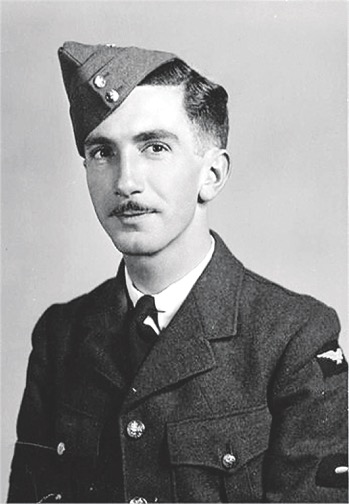Tom St. Amand and Tom Slater, special to The Sarnia Journal
(2016) When he established the Peace Corps in 1961, U.S. President John F. Kennedy reminded participants that their lives might not be easy but would “be rich and satisfying.”
Perhaps that was the reason years earlier Sarnian William “Bill” Clark enlisted in the Second World War. For if anyone had reason not to enlist, it was Bill Clark.
Born in 1912 to Bill Sr. and Agnes, Clark grew up in the North Christina Street area. He attended SCITS and loved sports, particularly baseball, rugby, and track and field. Later, he was a keen builder of model airplanes and an expert yachtsman at the Sarnia Yacht Club.
However, war in Europe erupted and Clark decided to enlist in the Royal Canadian Air Force.
He could have easily chosen not to enlist. He was the only son of his widowed mother, Agnes, for cancer had claimed Bill Sr. when his son was in elementary school.
And Clark had a successful job with a dry goods store on North Front Street. Despite his young age, he was the store manager before he enlisted.
The only son. A widowed mother. A secure job. And he was getting married.
On March 21, 1941, Clark married Toronto-born Marian Emily Leach. The newlyweds enjoyed a quick honeymoon in the Maritimes before he left for England. They had been married 15 days.
Three months passed. If Clark had stayed home, he’d be enjoying a new life with his young bride. Instead, he finished his training and was a Sergeant air-observer flying Wellington Bombers.
Clark’s job was to navigate the bomber to its target using only a wireless, the stars and some maps. Then he was tasked with dropping the bombs on the target.
In the early stages of the war, accuracy in bombing raids was negligible. Limited navigational guides meant nothing smaller than a city could be effectively attacked and ordinary crews had trouble doing that.
And it wasn’t safe. The Wellingtons, despite being the mainstay of the RAF Bomber Command, were more vulnerable than expected—even when flying at night. Though heavily-armed they were no match for the faster German fighters whose cannons could rip through armour plating and ignite fuel tanks.
On the night of Aug. 31, 1941, Clark was aboard Wellington aircraft W5577 on a bombing mission to Boulogne-sur-Mer, France. Somewhere off the Dieppe coast the plane was shot down and crashed into the sea. The body of William Clark was one of three recovered from the water.
Sergeant Clark is buried in the Dieppe Canadian War Cemetery.
His mother received official confirmation months later. In 1946, Marian Clark received her husband’s Operational Wings and Certification with a note commending his “young life offered on the altar of freedom in defence of Home and Country.”
He had fifteen days with his wife and left her a grieving widow.
Sergeant William Clark chose to leave his bride and an easier life in Canada. One hopes that his life, though shortened by war, was rich and satisfying for answering the call of duty.


